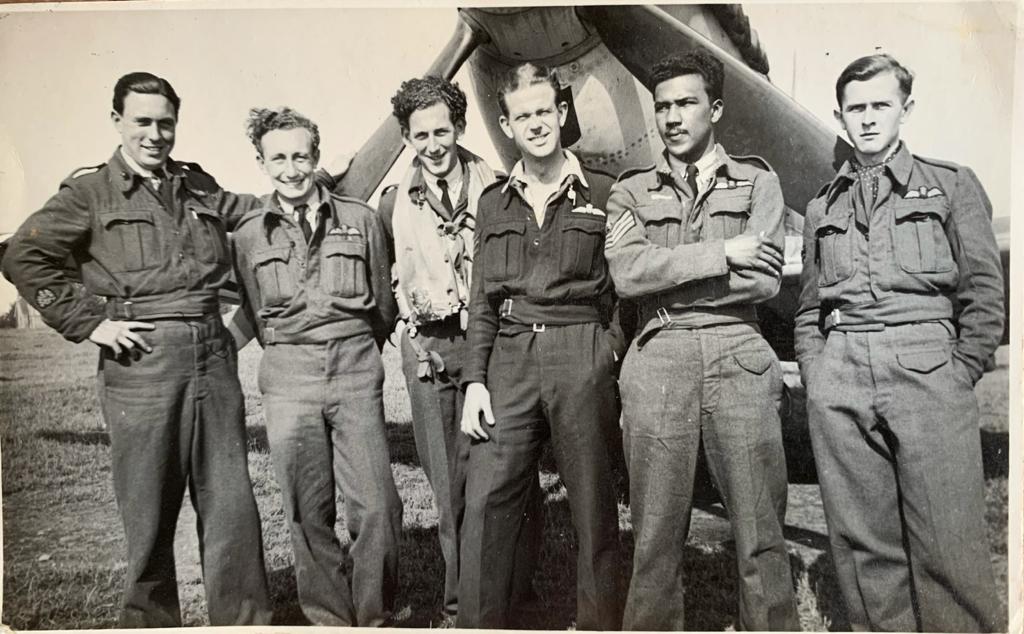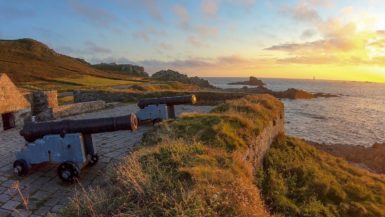Meet the distinguished British Airways captain who retired in 2020 with 24,000 commercial flight hours under his belt.
Malcolm Scott, 53, has spent three decades circling the globe. He’s chartered commercial flights from British Airways (BA) to every corner of the world. Following an early retirement due to the COVID-19 pandemic, he’s taken the opportunity to look back on his eventful career.
“Flying was always an exciting, interesting thing in my family,” Malcolm says.
His father, Robert Howard Scott, was a fighter pilot in the air force during World War II and lived a hair-raising life. He piloted Spitfires and Mustangs and flew over the Normandy beaches during the D-Day landings.
In 1943, Robert was on a training exercise in Tuskaloosa, Alabama and narrowly missed the call-up for the Battle of Britain; which Malcolm laughed off, saying “that was probably a good thing”.
Malcolm spent much of his childhood living in Kenya and Ghana. He attended boarding school in Taunton, aged 7, and believes that was where his interest in commercial flying began.
“I found it absolutely fascinating going up to the flight deck – knocking on the door and asking the pilot questions. I used to love airports and all aspects of travel,” he says.
Malcolm joined BA in 1988, aged 21. Initially, he flew Boeing 737s and 757s. He then went on to establish his captaincy on an Airbus A320 and continued to fly 777s for the majority of his career.
He talks fondly of his early memories as a pilot and some of the sensational destinations he visited over the years. Short-haul trips to Italy were one of his favourites.
“We stayed in a lovely hotel in the city centre, by the Pantheon. It was wonderful to arrive for the night, find a square to have some pasta and red wine, then fly home the next day,” he remarks.
Often there wasn’t a lot of time to look around on short-haul flights, he tells me. It was mainly on long-haul trips when he was able to stretch his legs. Destinations that were social hubs for pilots such as Mumbai and Buenos Aires were particularly appealing to him.


Curiously, it was often the places where he established a sense of routine that he enjoyed the most. Perhaps they weren’t as exciting to the intrepid traveller, but they gave comfort to a man who spent much of his life away from home.
Newark in New Jersey was one such place. It was close enough to Manhattan for a day visit but familiar enough to allow for some relaxation and downtime.
“I knew where to get a cheap beer and a bit to eat, and it was sociable from a crew point of view as there wasn’t a lot else to do,” he chuckles.
Being a pilot wasn’t always the adventure he expected. Often there were phases of extreme jetlag and plenty of pressures at work. It wasn’t uncommon for him to arrive at a destination, spend a night in the hotel, then fly out the next morning without seeing a glimpse of the country.
One of the things Malcolm struggled with over the years was the dwindling sociability of other pilots. As his career wore on, fewer ventured from their hotel rooms to socialise and many kept to themselves.
He felt this was an overarching sign of the changes being made to BA since the takeover by International Airlines Group (IAG) in 2011. Bureaucracy stepped in, money was squeezed, and often Malcolm felt the pilots were turning into numbers on a spreadsheet.
“When I joined, decisions were made by an airline, for an airline,” he says.
He remembers a sense of community and family at BA. Pilots were on the board and involved in the higher levels of management. It felt like an enterprise he was proud to be a part of.
Following the announcement that BA was cutting 1,500 pilots from their force in response to the pandemic, Malcolm felt it was the right time to step aside. He bears no ill-will against BA and felt they had been good to him throughout his career, particularly in the years before the merger.
Passengers and higher-ups were taking the magic of flying for granted and the challenges of the job were becoming increasingly wearing. He chose to leave when he could still savour that early buzz and spark for adventure.
Malcolm now plans to spend his time on hobbies such as tennis and golf, walking the dogs in the countryside around his Devonshire home, and doing DIY repairs on the house. Ample time to reflect and take stock, from a lifetime of travel.

